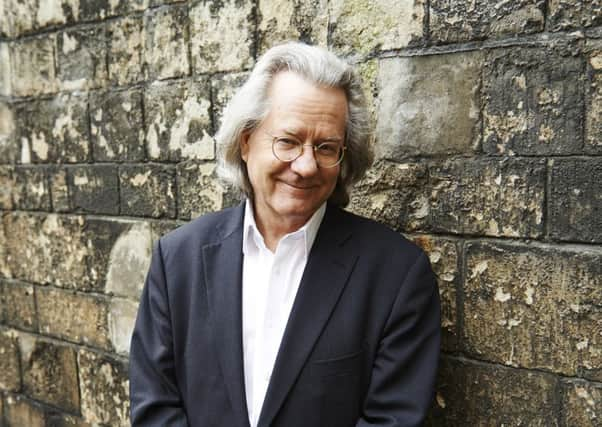A C Grayling: Democracy is in crisis in the age of unreason


“It has collapsed around our ears and we should all be jolly cross about it. I am.”
Along with many others in the event launching his book Democracy and its Crisis, I have never previously heard Grayling being jolly cross. Balanced, measured, yes; angry no.
Advertisement
Hide AdAdvertisement
Hide AdThat anger – which was sparked when he heard Donald Trump, on the stump, claim “I am Mr Brexit. You will see” – does admittedly have philosophical underpinnings. In the first part of his entirely noteless and surprisingly barnstorming speech, he showed how democracy has always been a matter of trying to ensure that rule by the people didn’t descend into ochlocracy – rule by the mob – but should remain informed, rational and beneficial to the majority. Plato didn’t think this could be done; to Aristotle, it was only possible in numbers small enough that everyone could hear the stentor, or town crier.
Whizzing through political philosophy, from the 1642 Putney debates to Brexit via Locke, Madison and Mill, Grayling examined how parliamentary checks on ochlocracy had gradually been undermined – in the US, through money, and here through the party system.
In the US, he claimed, because the presidency could be bought by those with enough money and enough supporters with “Super Pacs” (lobbyist groups with unlimited political funds), democracy was already a plutocracy. Here, the “bullying, bribery and blackmail” (all three outlawed in every workplace, but not, interestingly, at Westminster) of party politics meant that John Stuart Mills’s ideals about how MPs should independently represent the electorate’s interests had already been suborned.
And so to Brexit. Why Trump claimed he was Mr Brexit, said Grayling, was that both campaigns used social media – and, in Cambridge Analytica, had the same suppliers of metadata, which they used to “hijack” democracy. They did this, he said, by showing, after intense testing, what messages (even if contradictory) would have the biggest impact on voters and make the greatest appeal to their emotions. The Brexit vote was, he claimed, a matter of feelings, the Remain vote one of reason. Ouch.
In any case, though, Grayling doubts whether Brexit will ever happen . There’s one reason in particular, he said, “but I’m sworn to secrecy”. What a tease… Beyond that, though, there are the backstops of a parliamentary vote against implementing an advisory referendum along lines for which there is no majority in either the country or the parliament, and the possibility of another referendum, perhaps this time including those most affected by it such as young people and resident EU nationals. After 40 years, Britain and Europe “are like Siamese twins joined at the brain” and only fools – or a generation of politicians “who have lived in a time of complacency” – would suggest ripping the two apart.
But lessons, he said, should be learnt all the same. On the need for a constitution, for proportional voting, for greater transparency about the social media, for an informed debate looking at the consequences of actions, for banning people betting on elections (as Brexiteers did, betting heavily on a Remain vote to encourage complacency), maybe even on looking at the tabloid press. “That’s another hour,” chair Ruth Wishart pointed out.
Would all of that ever be enough to ensure that we lived in an age of reason, asked one Hume-quoting man in the audience. You don’t trap the bouffant-haired philosopher so easily. “No,” he replied, “we’ll always live in an age of unreason.”
Advertisement
Hide AdAdvertisement
Hide AdWill we always live in an age with breathable air? That question hovered at the back of science writer Sam Keane’s talk about his book Caesar’s Last Breath.
In it, I learned a heap of things about the Earth’s atmosphere, including why we should have listened to Einstein about fridges and how over-abundant oxygen once led to truly massive insects. But how would we breathe if we ever ended up on Mars? he was asked. Well, he replied, there’s one possible solution he found in an SF book: giving ourselves crocodile blood.
Over to you, Professor Grayling…